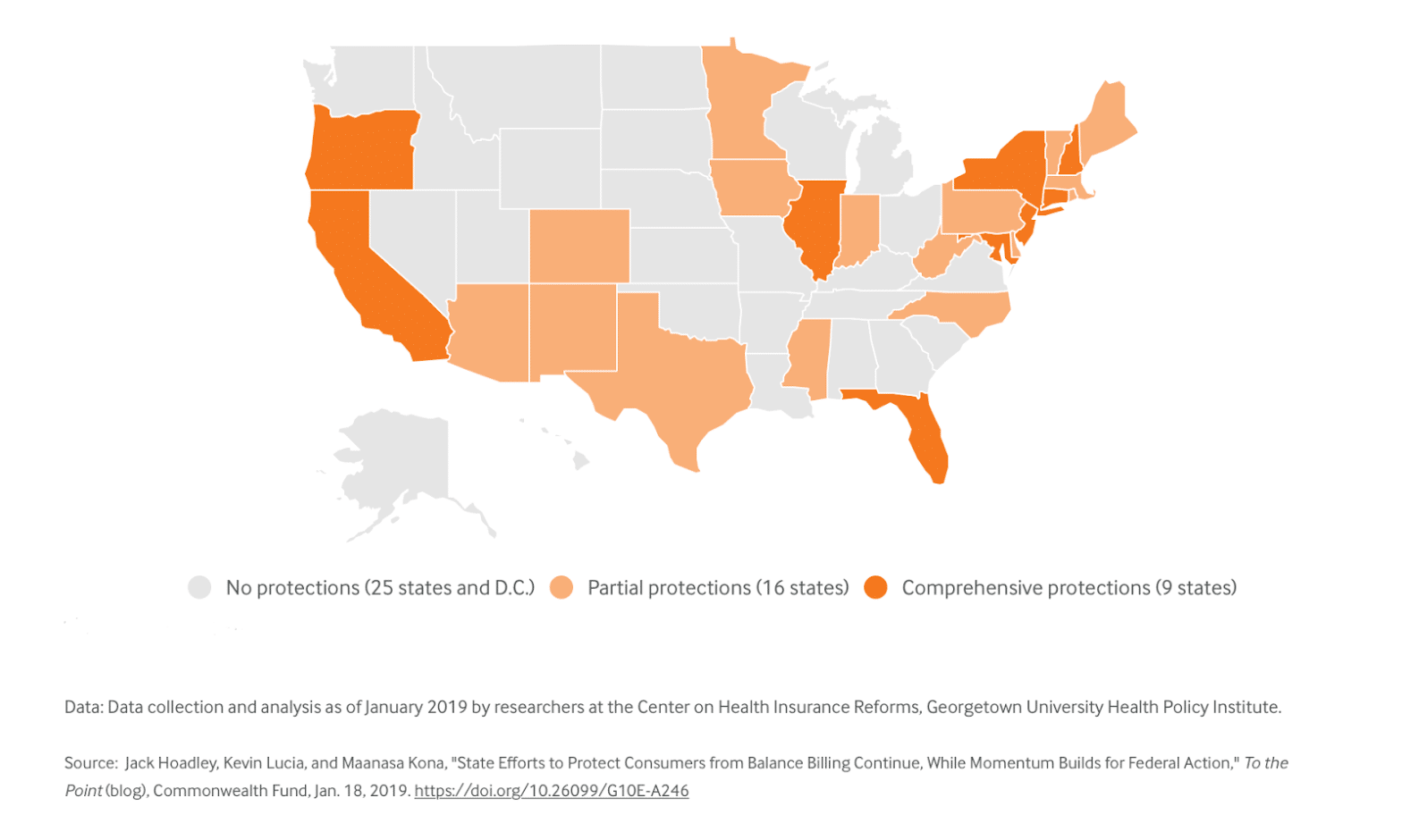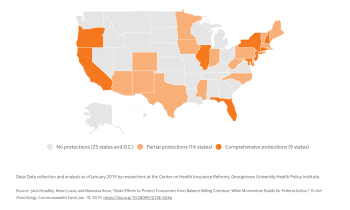New Bill in California Legislature Tackles Surprise Hospital Billing Practices

New legislation in the California state house is seeking to end surprise hospital bills that catch unwitting patients with expensive out-of-network insurance costs for emergency care.
Earlier this year, Vox’s Sarah Kliff reported on San Francisco woman Nina Dang and Austin man Scott Kohan, who suffered severe injuries and were treated at local hospitals. These stories have made headlines in recent months as surprise billing practices have brought much-needed attention to the predatory practice.
Nina Dang, who had a bicycle accident, was taken to Zuckerberg Memorial Hospital in San Francisco by the ambulance while unconcious. Weeks later, she was billed more than $20,000 for the accident as the hospital didn’t accept her insurance.
Scott Kohan, viciously attacked in Austin, woke up in a nearby hospital with no memory of the event. Learning the hospital was in-network, he was stuck with an $8,000 bill due to the oral surgeon being out of network.
These two cases were front and center during a House Education and Labor Subcommittee on Health, Employment, Labor, and Pensions hearing last month. While representatives from the USC-Brookings Schaeffer Initiative On Health Policy, American Benefits Council, Families USA, and Georgetown University’s Health Policy Institute were present, the conspicuous absence of doctors or a representative of their perspective on the panel was noted.
Specifically, Zuckerberg Memorial Hospital refused to enter into any contracts with any private insurers, instead opting to bill insurance companies for the costs directly. Anything the insurer declined to pay would be passed on to the patient. Often, the hospital would send the bill to collections if they were unable to pay.
California has taken strong steps to end the predatory practice of surprise billing once and for all, as Nina Dang’s case has been featured in a series of stories across the country. A new bill, A.B. 1611 by state Assemblymember David Chiu and state Sen. Scott Wiener, was introduced on Monday to prevent hospitals from seeking charges that are in excess of a patient’s regular copayment or deductible, even if a hospital was out-of-network.
Even though the hospital has since promised to end its practices, the legislation would apply statewide and would prevent other hospitals from engaging in the practice. California already has some of the strictest surprise billing laws on the books, according to Vox. In 2016, it passed a law that protected patients from surprise bills from out-of-network doctors they didn’t choose.
Despite California’s progress on efforts to tackle the crisis, it remains a severe problem for hospital patients nationally. Other states, like New York, Oregon, Illinois, New Hampshire, Connecticut, Florida, New Jersey, and Maryland have also passed comprehensive laws to protect consumers from surprise billing practices, according to research from The Commonwealth Fund. They noted that 16 other states have passed partial protections, but despite recent legislative progress in these states, most consumers across the country are not protected from surprise billing practices.
The organization Consumers for Quality Care (CQC) has been working to give patients across the country a voice while ensuring they have access to high-quality care. Surprise billing practices are an issue they have taken on as they have watched trends in health care become more focused on cost than quality.
“Over the last 5 years, hospital billing has become much more complex, specifically the arrangement between hospitals and insurers. These big players have really focused on figuring out how to lower their costs from their balance sheets and send them back to consumers. Surprise medical bills are a good example of how hospitals and insurers are leveraging any tool at their disposal to advance their own interests,” said CQC Board Member Jason Resendez.
Jason Resendez continued, “This is a culmination of a lot of efforts to roll back quality care and the ACA. We are seeing state Medicaid waivers getting approved that implement strict Medicaid work requirements. We’re also seeing the allowance of things like short-term, limited-duration coverage, which are basically junk plans that are cheap but then the care that you get under this plan is really weak and really not worth much in the long run. And so really surprise medical bills are a part of that trend, a part of that trend really focusing on cost over quality.”
CQC released a poll that highlighted the frustration that health care consumers nationwide are experiencing. Specifically, it found that 81 percent would rather pay more on a monthly basis for a health plan that has comprehensive coverage with minimal fees when they need treatments, versus just 19 percent who would rather pay less on a monthly basis for a health plan with skimpy coverage and pay large fees for needed treatments.
Outside of the subcommittee hearing earlier this month, there has been little movement on any legislative health care fixes in Congress while the surprise billing stories of Nina Dang and Scott Kohan illustrate a simmering anger on health care felt by consumers across the country.
In an effort to drive a quality-based health care conversation, CQC released a Negotiator’s Guide to the Health Care Concerns of Consumers to give Members of Congress and administration officials a clearer understanding of what consumers want them to tackle when it comes to health care.
What remains clear, however, is that health care remains top-of-mind for Americans and they are looking for leadership and solutions. California and other states are listening and working to fix problems that affect working families while offering a path for Congress and others to follow.


























